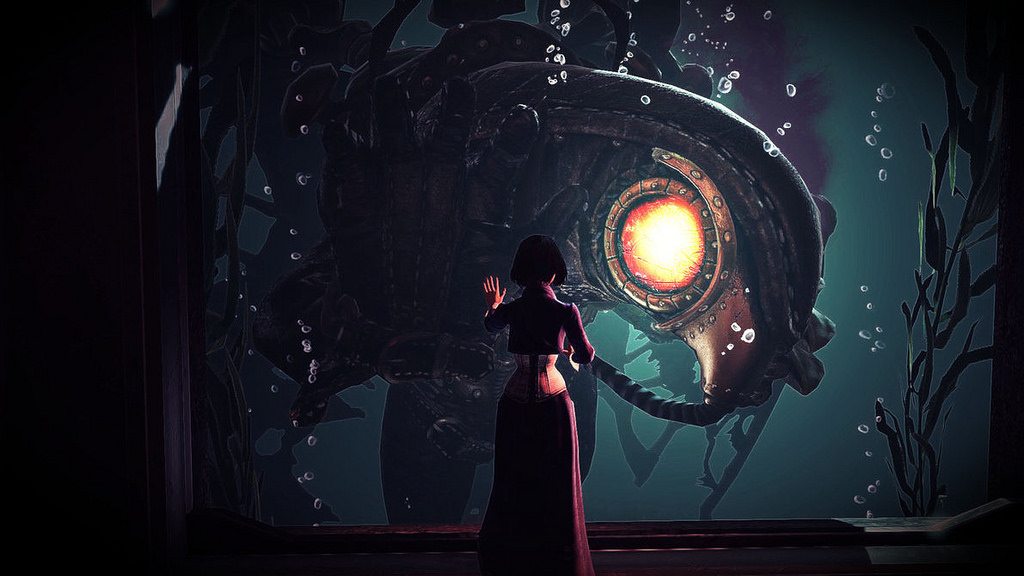Apolitical Gaming: Nintendo’s Misguided Claim
“Making political statements are for other people to do…we want people to smile and have fun when they play our games.” – Reggie Fills-Amie, President of Nintendo of America.
I wholeheartedly agree with the sentiment in encouraging happiness and joy to any and all who pick up a controller; however, I don’t think it should come at the expense of misery when facing anything other than a screen. Video games have always offered me a beautiful form of escapism, where I could be anyone and do anything. To get away from my own little bubble, right until my mum called me to dinner or I had to get ready for work. But I don’t believe that they have to sacrifice the portrayal of real world issues to do that.
The President of Nintendo of America seems to think that politics can’t be fun, and that art can have its political edges smoothed out. Watching a Sean Spicer press briefing or searching for “Tory U-turn” are sure fire ways to bring you a chuckle, and as long as people are still around, there is no form or aspect of art that cannot be politicised. Fallout 3 had to change the name of an in-game drug from morphine to med-X, to the delusion of exactly zero gamers. The two drugs encompassing remarkably similar characteristics and effects. Fills-Amie’s claim that Nintendo will be able to censure and cover all political statements and remain completely apolitical, will be about as hard to enforce as a government claiming its people will remain apolitical.
I couldn’t help but smile playing Journey, I was having fun even as I realised the deep and meaningful message of the game. To look after ourselves and our planet more, to not wage wars over resources we could share. This simple and beautiful game was improved, not dampened, by such an important message. I am fully aware that some people don’t like being preached to, or being exposed to opinions other than their own, and for them I recommend the game of solitaire to keep them company through the long and boring nights.
The President of Nintendo of America seems to think that politics can’t be fun and that art can have its politics edited out
Breath of the Wild has a distinctly political message. The idea of nature taking over after society that has collapsed offers a view of a world not ravaged by humans but adored by plants and wildlife. Is it surprising that in this hectic day and age; this overgrown, tranquil world is considered one of the best in the Zelda franchise? Players can have a brief respite from the constant bombardment of reality in order to recharge their batteries and summon the energy to face the real world. Breath of the Wild may not seem political in itself, but it certainly gives people the energy to pursue their politics once they put the controller down.
Another aspect of the game that could be considered political is a man of immense power being sealed in a castle away from the rest of society. It might seem like a fairy tale but it can also be read as a symbol of oppression and patriarchal power, as the sometimes archaic systems of political power continues to favour and protect the more privileged men over the women, minorities and poor who survive at the edges of their world. This is a bit of a stretch, I know, but the point remains; it is impossible to remove the politics from games. And, furthermore, it should not even be attempted.

Take that patriarchy, Flickr, BagoGames
Even games with the most basic gameplay and plot such as Missile Command on the Atari have political dimensions. That game has been read as a deterrent to nuclear war, as it shows gamers how hard it is to make the kind of split-second decisions between saving a city or a missile defence system, saving lives or securing lives into the future.
In the UK, politics isn’t part of the national curriculum and games like Papers Please or Bioshock can be a child or young person’s first experience of different political systems and beliefs, different ways of living. Think what it would do to a someone, seeing all those pixels being denied entry just because their papers don’t match? To someone experiencing this moral dilemma for the first time, they’re all still people regardless of what it says on paper. But a game like this shows them just how the injustices and horrors of the past, and even the present. A game like this could perhaps be the beginning of a career in human rights law, and this is the potential that Fills-Aime fails to realise when claiming that Nintendo will be making apolitical games.
Fills-Amie can try all he wants to make games apolitical but if there’s anything developers have shown us is that they’re sneaky, witty and determined
Fills-Aime can try all he wants to make games apolitical but if there’s anything developers have shown us is that they’re sneaky, witty and determined. Games are saturated with easter eggs and pithy calling cards. Their politics will still be present, they may just be a little harder to find. But more than that, these political ideas should not be censored, it is not only impossible to do so, but counter-productive. The potential that video-games have to change the hearts and minds of players across the globe, is immensely powerful. The political power they possess as artworks should be celebrated, not squashed or brushed under the carpet.

Comments